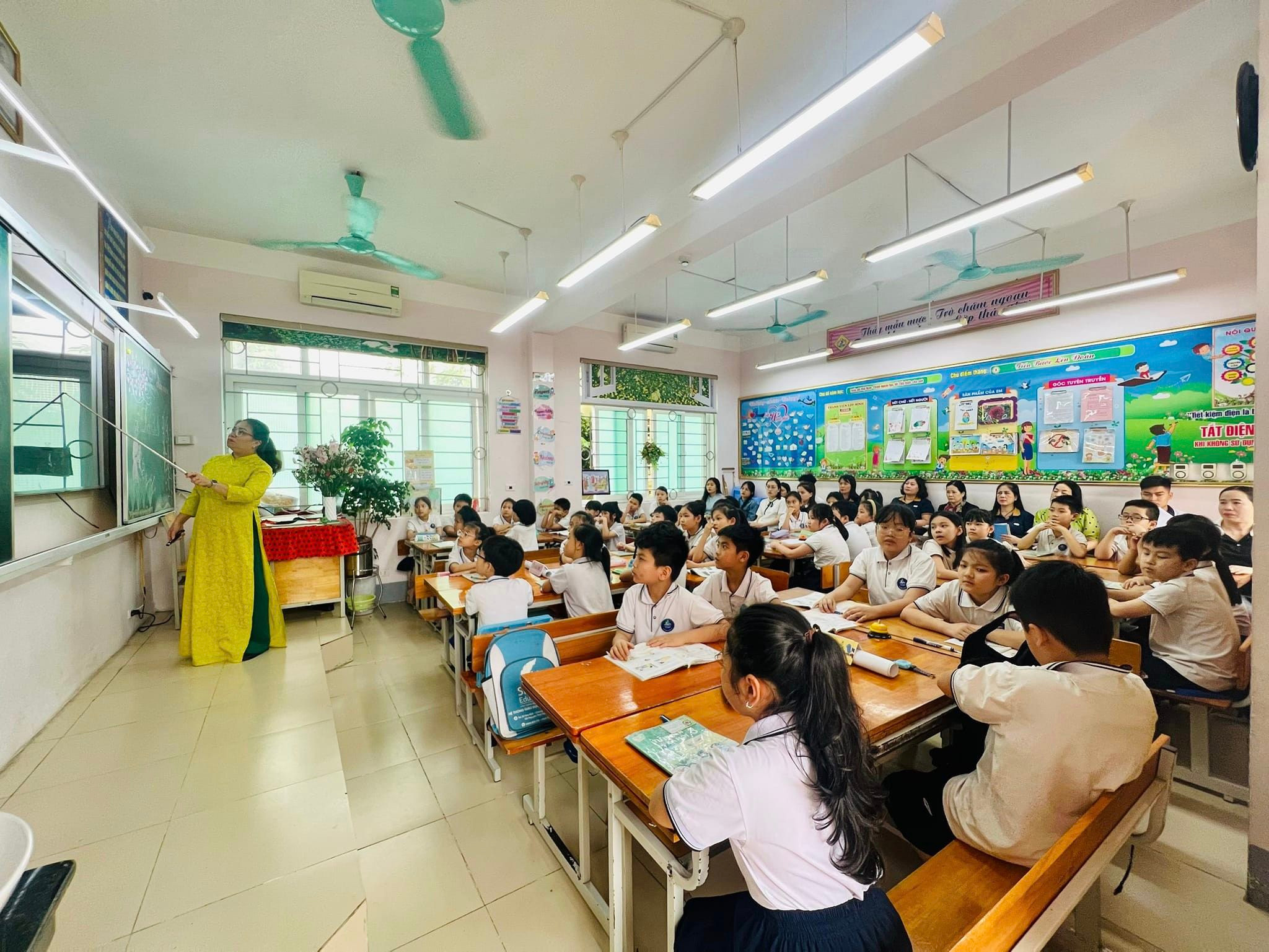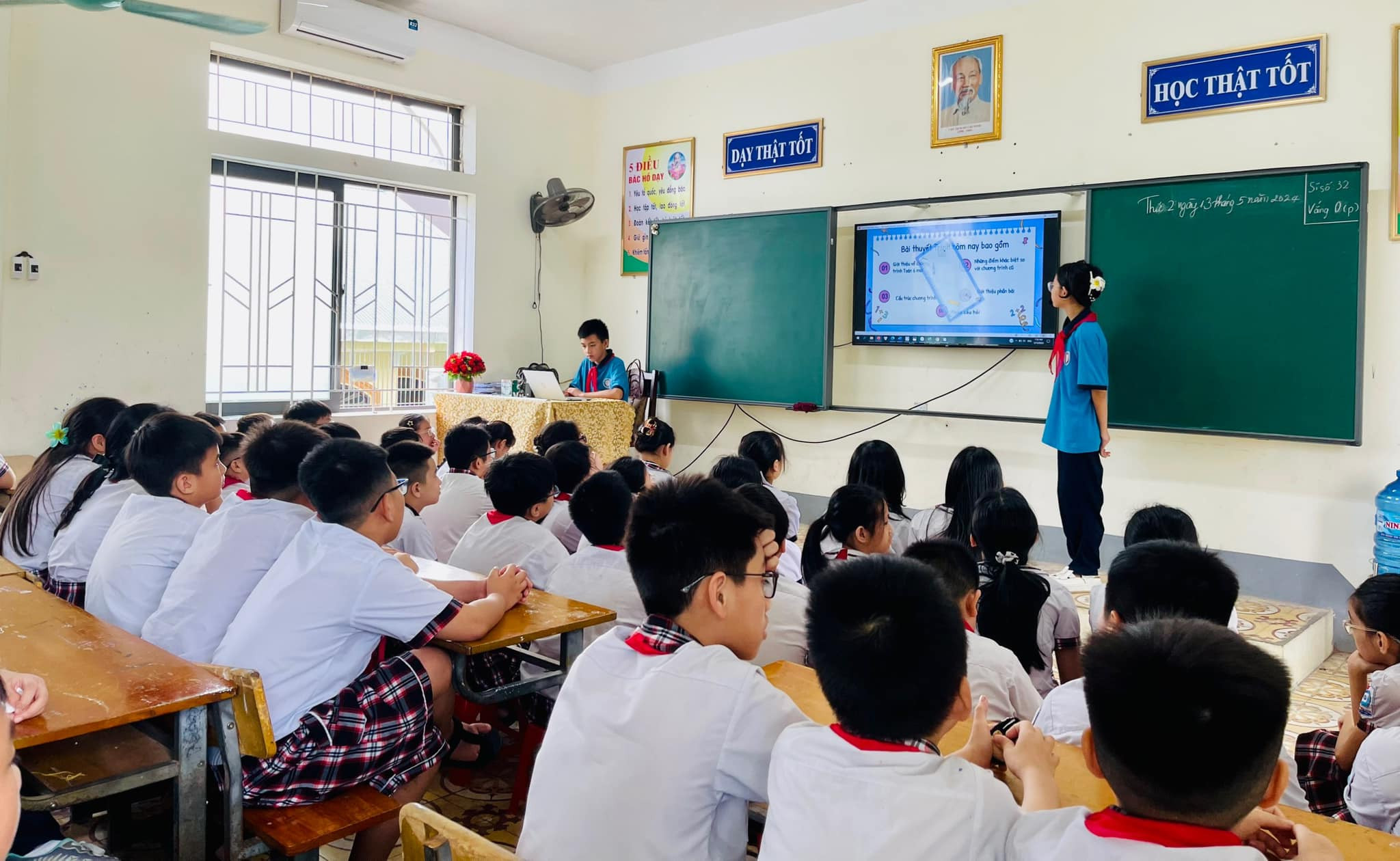Contribute to the discussion of success for advanced schools
To effectively implement the advanced school model, it is necessary to have the synchronous participation of departments and branches, especially agencies and units in the education system.
It is undeniable that the advanced school is a school model with many advantages. It creates an educational environment to practice management skills in a new mindset compared to the traditional school management model. It also creates conditions for teachers and students to have more opportunities to explore their potential, to unleash their capacity and ultimately create quality educational products, meeting the demands of high-quality human resources and the global aspirations of young people.

In fact, according to the assessment of some media sites, there are now advanced schools that are operating effectively. However, there are still some advanced schools/advanced classes that have not really met the expectations of learners and the expectations of the community.
The cause has been pointed out in many articles in a quite convincing way in the spirit of synthesizing the opinions of the relevant parties. However, finding the cause is one thing, but finding solutions and solutions to overcome it is another. I think that, to effectively implement the advanced school model, it is necessary to have the synchronous participation of departments and branches, especially agencies and units in the education system.
First of all, a strategic mindset with a long-term vision is needed. In the past, the implementation of building advanced classes right in traditional schools, which I temporarily call mass schools, has shown a rather hasty way of thinking. It is important to remember that, although still part of the national education system, advanced schools must be operated with a different model, ensuring advanced and modern nature in all aspects.
Previously, we had a system of specialized schools, then there was a policy to abolish specialized schools and selective classes and change them to high-quality schools, and now these schools still operate according to the specialized school model. The difference of specialized schools is education, training a team of elite learners, the quality of the school will be the spearhead, the "face" of education in each locality. As a product of education according to the specialized school and selective class model, I understand this difference. With advanced schools, the difference is even greater.

If the resources of specialized schools and selective classes are only the quality of students assessed by input admission and the qualifications and abilities of teachers, then advanced schools, which are built towards global education, are different not only in that, but also, and even more importantly, in the modern facilities and equipment to serve an advanced curriculum.
Some advanced schools in Ho Chi Minh City have achieved initial success thanks in large part to their full satisfaction of the requirements for facilities and techniques. This is an example of the value of strategic vision and planned, systematic implementation. In other words, the establishment of advanced schools requires, first of all, a process of policy and strategy planning, calling for investment, mobilizing necessary resources, and concretizing them into key projects.
Along with the preparation of facilities and techniques, the important thing is to build educational goals, in which it is mandatory to build educational program output standards according to the level, grade, and subject as a commitment to quality. Some parents think that studying in advanced schools or advanced classes, learners are easily overloaded, in my opinion, it is completely possible to share. When building appropriate output standards and program goals (of course in the spirit of the national education program but with appropriate adjustments, even proposing a separate program, as long as learners meet the requirements of quality and capacity according to the general convention of national education), within their capacity, both learners and teachers will have less pressure, can focus more to achieve the desired results as committed in the established output standards.
As far as I know, specialized schools and selective classes still respect and comply with the national curriculum framework, but will make adjustments to suit the key and in-depth goals. The current advanced school model tends to require students to learn more subjects/skills in addition to the already heavy educational program, which needs to be reviewed. One of the conditions that advanced schools must meet for students is to have time to relax to cleanse their spiritual life and regenerate energy.
In my opinion, the curriculum and subject headings in advanced schools should aim to be as streamlined as possible. It is also necessary to add that the program's objectives and output standards must be determined in accordance with the levels and grades of education, and cannot be general objectives such as modern skills, global thinking, and creating global citizens. Obviously, it is impossible to attach preschool children to the goal of thinking like global citizens.
Nowadays, schools have begun to selectively recruit students through aptitude tests, which means selecting elite learners, so administrators and teachers must also be elite. This shows that establishing some advanced classes in the mass school model, and then teachers must also run back and forth to teach in dissimilar classes with dissimilar requirements, can easily lead to pressure, affecting the quality of teaching. And teachers in advanced schools must be pioneers in renewing themselves, which means they must study and research continuously.
Financially, advanced schools do not only look at the parents' pockets but must have the active support of relevant parties, especially partners who have committed to employing workers or recruiting students for the next levels of education. These are businesses, universities, colleges, vocational schools... To achieve this, of course, students must be quality products. If they are public schools, the State must be involved. Of course, the author himself does not think that the advanced school system should be public schools, only focusing on the State's pockets.



